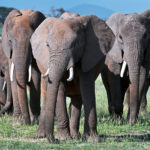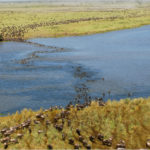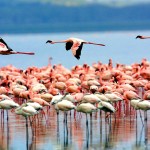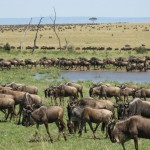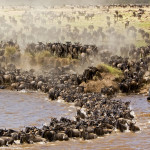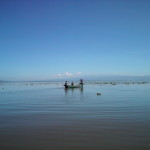General Information
BANKING HOURS
Monday to Friday: 0900 – 1600 hours
Saturdays: 0900 – 1100 hours (some banks)
Saturdays: 0800 – 1200 hours
NB: Banks in International Airports operate a 24 hour service
CREDIT CARDS
Access, American Express, Diners Club, MasterCard, Visa and other well know cards are widely accepted throughout Kenya. Traveler’s cheques or hard currency is required in Tanzania & Uganda.
CURRENCY
All three currencies are based on the decimal system. The unit of currency is the Shilling divided into 100 cents. Visitors are advised to check currency exchange rates regularly. Banks give slightly better rates of exchange than hotels. It is illegal to enter or leave these countries with any local currency and visitors must exchange any currency at their departure Airport or earlier on the day of departure at City and principal Town Banks. It is a serious offence to deface or knowingly damage such currency. Visitors are strongly advised to avoid street dealers and to transact all currency dealings through official dealers.
CUSTOMS
All reasonable volume of personal effects can be reasonably import together with cameras and any amount of film. Unused personal effects, unexposed film, cameras and accessories (except cine and slide projectors may be temporarily imported free of duty. A visitor wishing to bring home video equipment in the form of cameras and cassettes should consult the nearest Consulate or High Commission as a Customs Bond is normally required for the period such equipment is in the country. Refundable deposits may be required for the temporary import of radios, tape recorders and similar equipment including musical instruments.
COURTESY BUSES
Some out of town hotels provide a courtesy bus service (contact reception for the schedule).
DUTY FREE
Visitors are restricted to duty free items of 200 cigarettes or 50 cigars and one liter bottle of spirits.
DRIVING
Driving is on the left-hand side of the road and many of the road signs will be familiar to European drivers. Major cities are connected by roads, which for the most part are well metaled with long straight stretches.
Self-hire is arranged locally but not recommended, you will need an International Driving License. A maximum speed limit is 100 kph.
ELECTRICITY
Voltage in East Africa is 220 – 240 AC. An adapter will be necessary for appliances, which operate on 110 – 120 AC.
HEALTH
Malaria is endemic to certain areas of East Africa and all visitors should begin taking their anti-malaria prophylactics two weeks before arriving, throughout their stay and for a minimum of three weeks after leaving. Pharmaceutical facilities are adequate in the big City centres. There are chemists (drug stores) in all major urban areas but any visitors requiring special and continuing medication should bring sufficient quantities. The equatorial sun is deceptive and can inflict severe burns even on overcast days. Good sun cream and lip balms, with a high degree of sun protection factor, are strongly recommended. Piped water supplies are generally safe in municipal areas but local advice should be taken particularly on safari. Bottled mineral water, both local and imported, can be purchased in hotels, sundry shops and other tourist kiosks. Filtered and safe drinking water is often provided (in thermos flasks) in hotels or lodge rooms, but it is advisable not to drink water from the taps, rivers or lakes. Do not bathe in rivers and lakes.
IMMIGRATION
All visitors must be in possession of a valid passport. Visa requirements vary from time to time and are dependent on the nationality of the visitor. Valid passports and visas for everyone, with the exception of citizens of most Commonwealth and certain other countries with which East Africa has reciprocal waiver arrangements. Since it is essential that no visitor arrive without the correct documentation, visitors are strongly recommended to check the latest requirements either from Airline offices or through the nearest Tourist Office, Embassy or High Commission. Visitors with the proper documentation and holding onward return tickets may obtain “Visitor Passes” (normally valid for three months) on arrival at any Kenyan Port of Entry free of charge. Visitors who arrive without an onward ticket maybe asked to purchase one before obtaining a visitors pass. Visitors are not allowed to take up work or residence in Kenya without the authority of the Principal Immigration Office.
LUGGAGE ON SAFARI
It is strongly recommended that you keep limit to your luggage to one flexible lightweight bag and one handbag per person whilst on safari/tours. Most City hotels have facilities for storing luggage not required on safari. Laundering is normally available but can be expensive. On air safaris the maximum baggage per person is 15 kilos (Kenya) and 10 kilos elsewhere.
LOCAL BUSES
The use of local country or urban buses is not advisable. Although they offer cheap services to most major towns, they tend to be overcrowded, extremely uncomfortable and driven at neck-breaking speed.
PHOTOGRAPHY
Film is available at most Game Lodges, even in remote areas, but stocks are usually small and of the common sizes and brands. Most cities have supplies of normal types of film. For game and bird photography, a telephone lens of 200-300 mm is strongly recommended. Larger lenses, which require a tripod, are generally impractical for game photography, as are double lens reflex cameras. A lens hood and ultra violet filter are advisable, also a dust proof cover. So are batteries for cameras as they are seldom available when on safari
*Visitors are advised that it is an offense to photograph Kenya’s Head of State, Military installations, Police in uniforms, etc. As a general rule elsewhere, visitors are strongly advised to seek permission before taking anyone’s photograph, especially the Samburu, Turkana and Masai tribes.
RESTAURANTS
The major cities have restaurants offering International Cuisine, in Nairobi there are two excellent Italian and a number of Indian Restaurants. Traditional African food focuses on fish dishes.
SECURITY
In keeping with many tourist centres worldwide, visitors are advised not to leave any valuables in their hotel room when they go out, but to make use of the Safe Deposit Boxes which are available at most hotels and lodges (some rooms are equipped with a safe). Visitors should never carry large sums of cash and women are advised to keep a tight grip on handbags in crowds and busy thoroughfares. As in all major cities, it is advisable to avoid backstreets at night (especially alone); in fact it is much safer to avoid night walking altogether and use taxis or self-drive hire cars instead. Most hotels have experienced security personnel.


